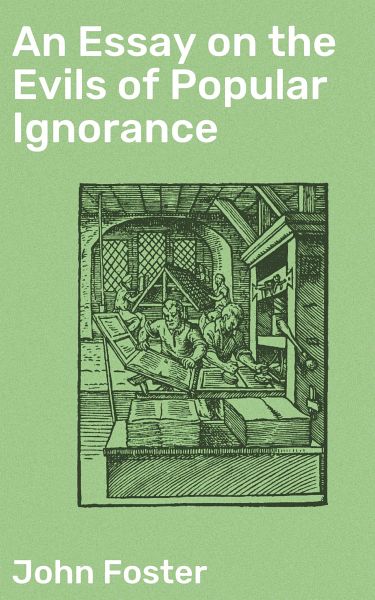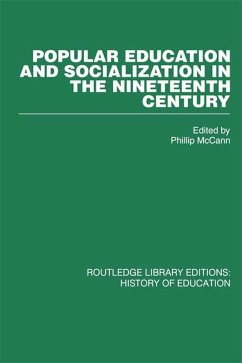
An Essay on the Evils of Popular Ignorance (eBook, ePUB)
Enriched edition. Unveiling the Toll of Ignorance: A Critical Analysis of Social Inequality and Educational Reform in 19th-Century England
Kommentar: Cole, Everett / Redaktion: Good Press

PAYBACK Punkte
0 °P sammeln!
In "An Essay on the Evils of Popular Ignorance," John Foster meticulously dissects the repercussions of widespread ignorance on society, weaving a compelling narrative that grapples with the essence of knowledge and its societal bearings. Written in the early 19th century, Foster employs a rich, rhetorical style characteristic of the Enlightenment, blending carefully reasoned arguments with passionate prose. His exploration into the moral and social dilemmas posed by ignorance reflects a deeply analytical approach, offering readers a comprehensive critique of contemporary socio-political dynam...
In "An Essay on the Evils of Popular Ignorance," John Foster meticulously dissects the repercussions of widespread ignorance on society, weaving a compelling narrative that grapples with the essence of knowledge and its societal bearings. Written in the early 19th century, Foster employs a rich, rhetorical style characteristic of the Enlightenment, blending carefully reasoned arguments with passionate prose. His exploration into the moral and social dilemmas posed by ignorance reflects a deeply analytical approach, offering readers a comprehensive critique of contemporary socio-political dynamics and advocating for enlightenment through education and critical thought. John Foster, a prominent essayist and critic, was profoundly influenced by the intellectual currents of his time. His own experiences in a rapidly changing world, marked by the burgeoning of industrialization and the reform movements that characterized early 19th-century Britain, compel him to confront the dangers of ignorance. His background in literature and philosophy provided the tools to articulate these issues with both precision and empathy, making his work a significant contribution to educational discourse. Readers interested in the interplay between knowledge and societal well-being will find Foster's essay both enlightening and troubling. This work not only serves as a historical artifact but also resonates with contemporary discussions about misinformation and the importance of education. A must-read for anyone seeking to understand the foundations of societal progress through the lens of knowledge. In this enriched edition, we have carefully created added value for your reading experience: - Hand-picked Memorable Quotes shine a spotlight on moments of literary brilliance. - Interactive footnotes clarify unusual references, historical allusions, and archaic phrases for an effortless, more informed read.
Dieser Download kann aus rechtlichen Gründen nur mit Rechnungsadresse in A, B, BG, CY, CZ, D, DK, EW, E, FIN, F, GR, H, IRL, I, LT, L, LR, M, NL, PL, P, R, S, SLO, SK ausgeliefert werden.













